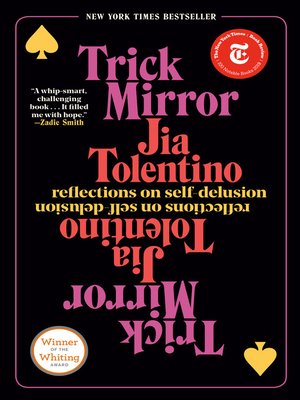

“In the beginning the Internet seemed good,” Tolentino writes in “The I in Internet”, the first story in the collection.

The works are palatable but demanding in scope always self-aware and never pretentious. In fact the book, which could easily have been a collection of previously published works or a natural career move for the promising young writer, turns out to be the ideal extension of Tolentino’s talents and resources. Trick Mirror‘s nine essays are very much continuations on these themes, but the essays themselves are longer and more deeply researched. She’s a historian of very recent history. Regardless of topic, Tolentino has been bringing a sharp critical eye to many corners of contemporary life. Her writing charted the development of memes like the “ Large Adult Son“, uncovered the strange totalitarian interpretations of Thomas the Tank Engine, and gave an anguished look at the Brett Kavanaugh hearings and the lengths men will go to for other men. After getting her start by writing for The Hairpin and Jezebel, she moved on to the The New Yorker as a sort of roving millennial correspondent - one whose deeply reported essays were able to be both petty and consequential, purposefully silly and occasionally deeply profound. That voice, and the topics she covers, will be familiar to fans of her magazine work.

It’s also a breeze to read, and Tolentino’s luminous and slyly funny personal voice makes arguments that are based just as much in morality and decency as they are in facts and logic. Though the book is studious and astute, it’s not by any means an academic text bound by inflexible jargon or stuffy prose. Like climate scientists who determine whether it’s too late to save a dying planet, her book takes a look at how other ills that affect our society - the Internet, social media, capitalism, sexism - contribute to the decline of civilization in their own ways. Although Trick Mirror, a collection of nine new essays from The N ew Yorkerwriter Jia Tolentino, isn’t strictly about the end of the world, its arguments certainly adopt a pessimistic tone about the state of the planet.


 0 kommentar(er)
0 kommentar(er)
